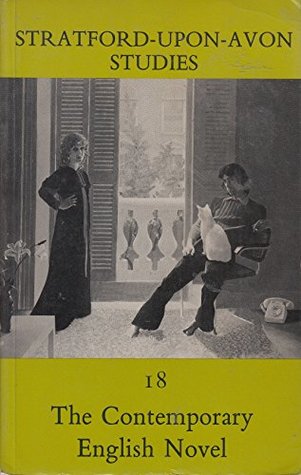

 |

|

The average rating for The Contemporary English novel based on 2 reviews is 3 stars.
Review # 1 was written on 2012-07-16 00:00:00 Andrew Boeckel Andrew BoeckelI read this back in 1997, and made quite a few notes on it at the time. This is an edited version of what I wrote, after having called it an 'arrogant book on writing.' Zulfikar has an idea that literature is limited to a certain select few; the rest of us hacks shouldn’t be attempting to write at all. Perhaps there are too many creative writing schools and too many courses, but Z’s limited view of what counts as 20th Century Literature consists of such as William Faulkner and Flannery O’Connor amongst the Yanks – and Nabokov, who is not an English-born writer; Forster is thrown out amongst the English (particularly his ridiculous opening chapter describing the geography from a distance); Hemingway is totally non persona grata – he apparently never wrote a story that was worth any critical salt; and Doris Lessing gets the same treatment, as being unable to put together a set of characters in a sound piece of writing. He dissects and demolishes Our Friend Judith at length, as he does with a couple of Hemingway stories: The short happy life of Francis Macomber, for one, which certainly comes out sounding pretty silly, and some of Steinbeck’s (The Chrysanthemum gets a demolition job, well-deserved if we are to believe what the Prof says). Faulkner’s story, Barn Burning, is regarded as amongst the best, and he shows us passage after passage of wonderful writing in it. In fact, Ghose’s book would have been much better if he’d shown the wonders of other stories rather than destroying Hemingway and Co, however much they may deserve it. Poor writers will eventually disappear; wonderful writers won’t. Beyond his dissections, he delves into the nonfiction writing of several ‘great’s (including O’Connor again, with whom the Americans seem to have a love relationship unknown outside the USA) such as Henry James and particularly Flaubert, whom he obviously regards with a devotion bordering on idolatry. But is Flaubert listed as one of his five all-time supreme novelists? No, he doesn’t make it into that exalted group, who are: Cervantes, Tolstoy, Balzac, Dickens…and Proust. This is a little curious, since Proust has only really come into the literary worldview since the sixties, but he’s given a lot of mileage as being another writer who’s good at telling other writers how to write. Ghose does have some good advice (all of it culled from other writers) on how to be a writer – a rather curious thing to write his book on since he discourages writing so heavily (not his own, of course – he’s the author of several unheard-of novels and four books of poetry and his autobiography). But he has unfortunately decided to append a question and answer section – the book is intended I think as some sort of text – in which his arrogance so shines through that any sympathy you had with his words on writing is driven away like tumbleweeds in the wind. He also is one of the school that doesn’t plan his writing; it just evolves out of the imagination, and the form derives from the writing itself, rather than vice versa. There’s some value in his approach: the overly-plotted book is likely to have problems if it wants to retain the integrity of his characters, who will, if allowed, refuse to fit into what you have planned for them. His view is that as you write the imagination will throw in themes and subjects and symbols without your having to work them up; it will only be as you come back to rework the material that these things become more plain, and may not even then, to you, as the writer. He is opposed to ‘isms’ including realism, saying that reality is what we should be writing about – writing about the reality of everything we see – these real things will then take on symbols and depths that we hadn’t as the writer(s) necessarily aimed for, but will be all the more true for all that. (I think that’s what I’m trying to say.) And our own beliefs will come through our writing – we don’t have to be didactic to show them. I’m probably doing him some injustice; I think his points could have been made with less arrogance and intolerance, but he obviously doesn’t. The value of the book is that he does open up some stories that were unfamiliar to me; he does show how great writers have viewed their craft; and he does encourage, in spite of his attempts to discourage, other writers to continue to do what writers do: write. |
Review # 2 was written on 2015-09-19 00:00:00 Jennifer Bruce Jennifer BruceMayday, Mayday !! The GR blurb for this book is for an entirely DIFFERENT book. 6-3-2012. |
CAN'T FIND WHAT YOU'RE LOOKING FOR? CLICK HERE!!!